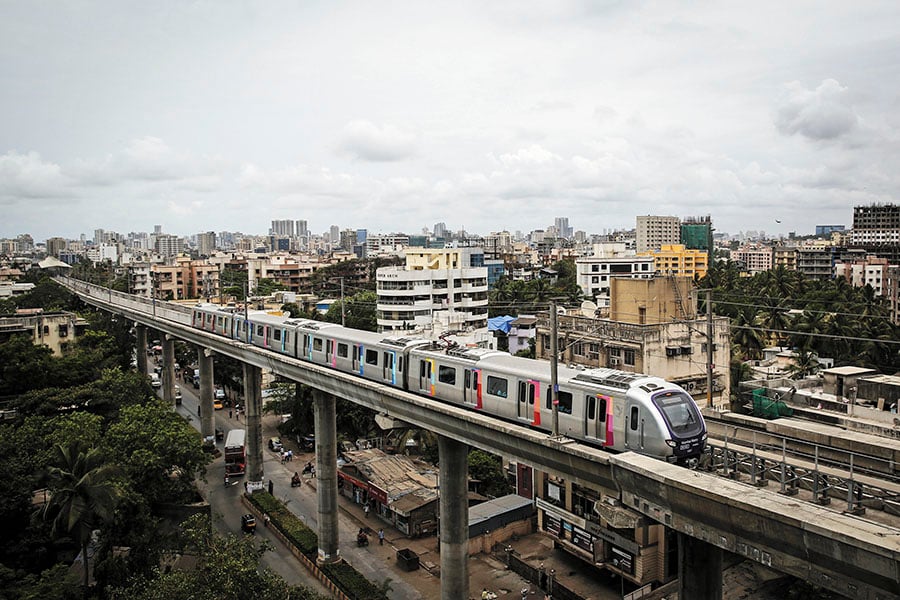Govt must focus on reforms in direct tax, job creation: Shobana Kamineni
The Budget must take steps to make the Indian corporate sector competitive and send across a message that the country is a haven for investors


The Union Budget 2018 will be presented at a time when the economy is on the cusp of a recovery. The focus will be on how that can be strengthened so as to have an impact on the lives of people. Finance Minister Arun Jaitley will likely pay attention to issues such as rejuvenation of the rural economy, acceleration in building infrastructure and generation of quality jobs in manufacturing. This is also the first budget to be presented in the Goods and Services Tax (GST) era, thus ruling out any changes in excise and service tax rates. Reforms in direct tax laws, however, are on the cards and those would give further impetus to the economy.
The Indian corporate sector needs to be globally competitive for which tax rates need to be on a par with other countries. With the minimum alternate tax (MAT) and dividend distribution tax (DDT), the tax burden on the Indian corporate sector is one of the highest in the world. The US has announced a reduction of corporate tax rate to 20 percent with effect from 2019. The UK plans to reduce the current rate of 20 percent to 17 percent from April 2020. Singapore applies a tax rate of 17 percent. Emerging economies too have lower tax incidence.
The Confederation of Indian Industry (CII) has recommended a reduction in the corporate tax rate to 18 percent with withdrawal of tax incentives and exemptions, and dropping of surcharges and cesses. Further, MAT should be abolished or brought down to 10 percent. The DDT rate too should be brought down to 10 percent. This will send a powerful message to the Indian industry and global investors that India is an attractive investment destination. Public spending needs to be stepped up in sectors such as roads, rail and waterways
Public spending needs to be stepped up in sectors such as roads, rail and waterways
Image: Danish Siddiqui / Reuters
In infrastructure, public spending needs to be stepped up in sectors such as roads, rail, waterways. A critical push is also required in public housing projects in industrial clusters and agri-infrastructure areas such as irrigation, cold storage, warehousing, rural roads, to raise farmers’ income. In order to raise funds, we have suggested that the government speed up the formulation of its asset recycling policy and identify public utilities and infra projects either for outright sale or for giving out operation and maintenance contracts to specialised private sector firms.There is an urgent need to renew the focus on revitalising public private partnerships (PPPs). An effective dispute resolution mechanism needs to be put in place by implementing the recommendations of the Kelkar Committee on revisiting and revitalising the PPP model of infrastructure development. Further, the government should award projects to the private sector only after securing key sovereign clearances with proper interventions to ease norms in land, labour and environment, especially for big infrastructure projects.
Given the constraints on land availability, the CII has suggested that a ‘Land Bank Corporation’ be set up to make available surplus land owned by the government. Multiple public entities like the railways, army and airport authority, hold vast parcels of public land in prime urban spaces which are often underutilised. There should be a publicly accessible inventory of such land, which the industry can access if it wishes to invest.
undefinedWith MAT and dividend distribution tax (DDT), the tax burden on the Indian corporate sector is one of the highest in the world[/bq]
The power sector is seeing a lot of stress. While a lot of capacity has been created in generating power, some of these are stranded assets as distribution companies are not buying power from them. In this context, the CII suggests the creation of a ‘National Power Distribution Company’ which will buy power from the generating companies when the state utilities are not able to do so. This will create a unified market for power in much the same way that GST has created a single market for goods and services.
The rural sector needs to be rejuvenated by injecting more dynamism in both agricultural and non-agricultural activity. A target has been set for doubling farmers’ incomes. To achieve this, it is important to set up post-harvest infrastructure, including warehousing and cold storages at the district level, and lease to the private sector, including food processors and large buyers. Current contract farming laws need to be amended to allow leasing of farm land on contracts to corporates and large growers without transfer of titles to reap the benefits of large-scale scientific farming. The CII has suggested the creation of an empowered group of state agriculture ministers to implement reforms in agriculture, much like the empowered committee of state finance ministers, which made GST possible.
India needs to invest in human development to best leverage its demographic dividend. Public spending on education is currently 3.2 percent of GDP and needs to be gradually raised to 6 percent. In health care, the current spending is just 1.5 percent of GDP it should go up to the stated target of 2.5 percent by 2022. In education, we need to boost technology usage in schools and a fund could be allocated for teacher training. Merit scholarships for secondary education would lower dropout rates.
In health care, the private sector should be encouraged to partner for universal health care and states must be allowed to go for PPP in district hospitals. Infrastructure status may be given to private hospitals. A special fund can be created for remote and digital health care facilities in rural areas. Special attention must be given to the development of 100 backward districts. A target should be set for improving India’s rank in the human development index to within 50 from the current 131.
Creating quality jobs must be a near-term objective. The Budget could offer incentives for employment generation and a pilot scheme for universal basic income for poor households may be undertaken. Employment generation would also flourish if coastal economic zones are created with incentives to create jobs.
Although GST is no longer a budget issue, the CII hopes that the finance minister will highlight the need to move to a simpler structure with three rates and inclusion of more items to ensure free flow of credit through the supply chain. Once there is stability in the tax rates and more items are included, there should be an increase in the tax-GDP ratio. Higher revenues should be used judiciously on productivity-enhancing measures rather than subsidies and giveaways. The industry looks forward to another path-breaking budget.
The writer is president, CII
First Published: Jan 31, 2018, 06:17
Subscribe Now